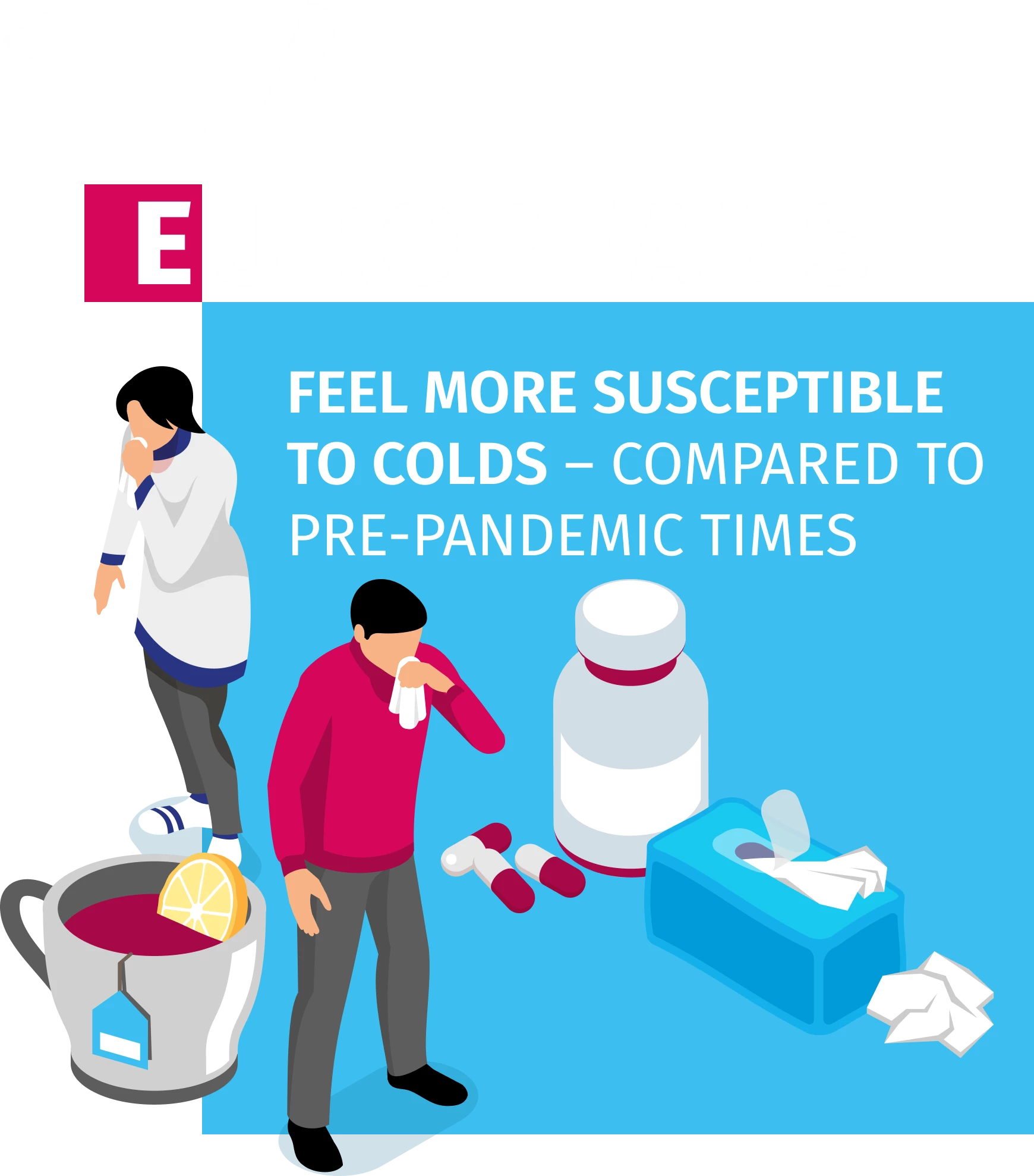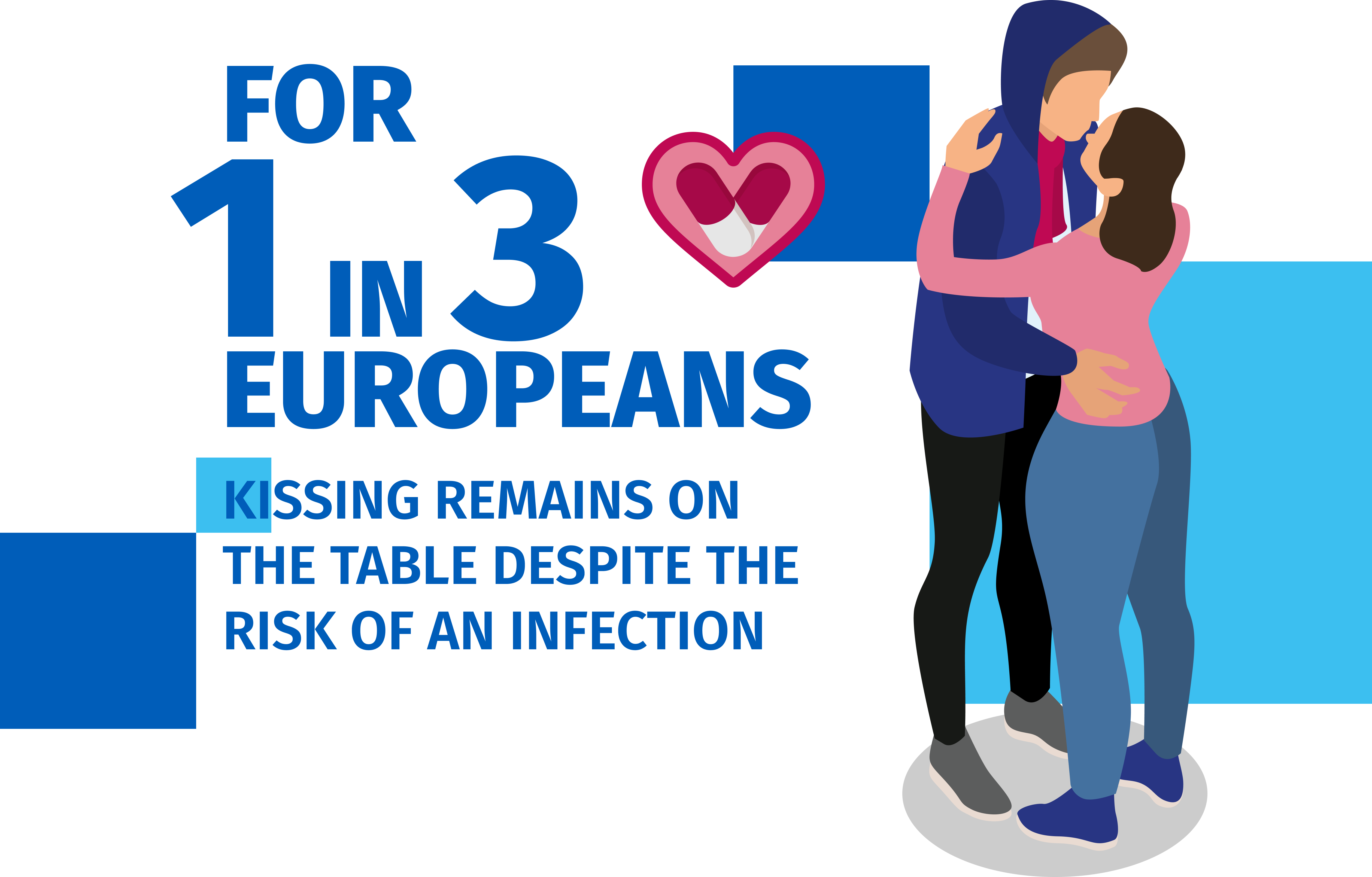Select your country
Websites worldwide
Select a country to go to the website of the respective STADA sales company.
Australia (1)
Austria (1)
Belarus (1)
Belgium (1)
Bosnia-Herzegovina (1)
Bulgaria (1)
China (1)
Croatia (1)
Czech Republic (2)
Denmark (1)
France (1)
Hungary (1)
Ireland (1)
Italy (1)
Montenegro (1)
Netherlands (2)
Poland (1)
Portugal (1)
Romania (1)
Saudi Arabia (1)
Serbia (1)
Slovakia (1)
Slovenia (1)
Spain (1)
Switzerland (1)
Thailand (1)
The Phillippines (1)
United Kingdom (3)
Vietnam (2)
Cough and Colds
A runny nose, cough and temperature – in the not too distant past, those signs would have sent others running. And while Covid is still around, it is much more likely that such symptoms are harbingers of the common cold, especially during the wet and cold season.
However, the common symptoms of a cold can also be unpleasant and should not be underestimated. The first signs of a cold in particular should be dealt with quickly and effectively, especially to avoid a worse infection and infecting others and to protect your own immune system.
But how are people in Europe behaving with regard to colds after the pandemic? Do they think the pandemic has had a lasting impact on their immune system, making them more susceptible to the common cold? How confident are they in detecting a tell-tale sign of infection? And do they set boundaries on close physical contact with their partner in hopes of avoiding contagion?


Perceived impact of pandemic on immune system especially high among European youth
With mental health and sleep quality on the rise after the pandemic, what are tangible long-term effects for the general population? 1 in 4 Europeans (23) have an answer to that – compared to pre-pandemic times, they now feel more susceptible to colds.
Approval ratings among 18-34-year-olds are even higher: a third (32) of the European youth believe they now fall ill more easily. At the same time, 12 percent think their feeling more susceptible to colds has nothing to do with the pandemic, and 62 percent of Europeans say that they have not noticed any changes and have colds just as often.
Majority of Europeans would still get intimate with a sick partner
41 percent of Europeans try to ward off an infection when their partner is sick by avoiding physical intimacy. For 1 in 3 (30), kissing remains on the table regardless, and an additional 29 percent would not want to forego intercourse because of a cold.
People in the Netherlands and Austria (67) as well as Switzerland (66) are most likely to be intimate with a sick partner, compared to only 48 percent in the UK. Across borders, men are more likely to pursue intimacy (63) in spite of illness than women (55), and people between the ages of 18 and 34 (31) care less about possibly catching their partner’s cold than middle-aged (40) and older people (50).
In terms of what constitutes “sick”, there might be some disparities across the continent: only 37 percent of Europeans know that the lowest temperature classified as fever in adults is 38° Celsius – 45 percent guessed 37.5°C and below, 18 percent 38.5°C and up.












